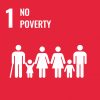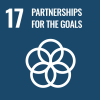Cameroon – Since the COVID-19 outbreak, many Cameroonian migrants, like countless others from West and Central Africa, have been stranded en route to their destinations due to lack of resources or because countries closed borders to stop the spread of the virus.
Despite these restrictions, the International Organization for Migration (IOM) continues to provide voluntary return assistance to stranded migrants along migration routes.
Between January and June 2021, 233 Cameroonians benefited from IOM’s assisted voluntary return and reintegration programme, including 194 men, 19 women and 20 children (13 boys and 7 girls). These returnees, who were already receiving holistic assistance from IOM’s protection teams in transit centres in Niger, were able to return home, where most of them have started their reintegration process.
“My brother and I waited five months in Niger. The situation was not always easy but what helped us hold out under this circumstance was the fact that despite how long it would take, we would soon be back home,” said Youssouf, a returnee from Algeria.

Photo: IOM/Alexander Bee
Under the EU-IOM Joint Initiative for Migrant Protection and Reintegration, IOM works closely with the Cameroonian authorities and non-governmental organizations, through a transparent and inclusive approach at all stages of the process.
Eric Atangana, reintegration counsellor at the Ministry of Youth Affairs and Civic Education, said the reintegration process starts with screening migrants, including checking their identity. A reintegration plan is then developed in counselling sessions between the migrant and a counsellor.
“Subsequently, a project summary sheet is drafted and validated during a sectoral committee made up of several actors, including a government representative, a civil society representative and IOM staff,’’ Atangana said.
“After the committee has validated the project, the business plan is developed and adjusted accordingly. This ensures that the case is completed and finalized, then forwarded to the reintegration unit for the funding process.”
In practice, this process is far from a smooth ride.

Photo: IOM/Alexander Bee
It is complex, multidimensional, and requires the continued collaboration of all stakeholders. For example, some of the migrants have trouble establishing their national identity cards, which are crucial to receive economic support. Then there are lags for some reintegration projects because of lack of constancy and/or dedication of some returnees applying for socioeconomic reintegration.
Arnaud, 31, who returned from Algeria in January this year, initially faced a tough time but has settled in, although challenges remain. “Since I started keeping and selling broiler chickens, I am focused on this activity. Before my reintegration, I worked on construction sites and that was exhausting and poorly paid. Now I focus on my chickens,’’ Arnaud said.
‘‘Due to the COVID-19 pandemic, the business is quite precarious; suppliers are having trouble delivering the products, so I face delays in meeting my commitments and this compromises my production schedule. However, this activity enables me to fully address my needs and, gradually, I am rebuilding my life.”
On top of these hurdles in the reintegration process, more migrants are applying for voluntary return assistance. “Since January 2021, the number of assisted voluntary returns has been increasing. The main challenges in organizing these returns are related to the COVID-19 pandemic response that has entailed decreeing restrictive measures,’’ explained Lonje Bernard, reintegration assistant at IOM in Cameroon.
“Returnees must submit negative tests upon arrival dating back three days. They still have to retest at the airport and wait for the results on the spot. This makes everyone feel stressed and nervous. There has been a considerable increase in operations between January and June 2021,” Bernard said.
From June 2017 to date, with funding from the European Union Emergency Trust Fund under the EU-IOM Joint Initiative for Migrant Protection and Reintegration, this programme has enabled more than 5,450 Cameroonian migrants to return and reintegrate.
For more information, please contact Pascale Essama at IOM in Cameroon, Tel: +237 657 103 074, Email: pessama@iom.int.


